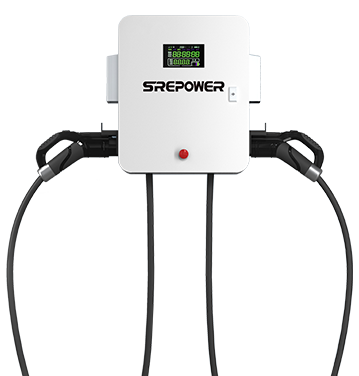As Indonesia pursues green mobility, battery swap station Indonesia solutions—featuring rapid exchange, cloud monitoring, and modular design—are becoming vital for two-, three-, and four‑wheeled EV users to recharge in minutes, accelerating adoption and reliability across the archipelago.
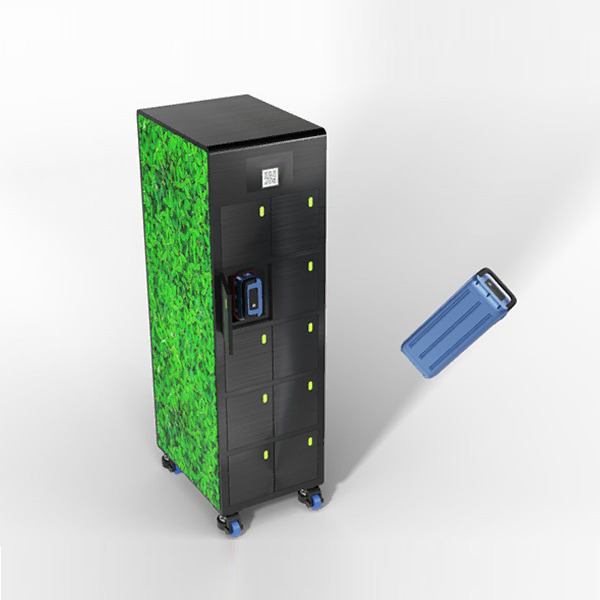

Battery swapping stations have emerged globally as a rapid-response alternative to conventional plug‑in charging. China leads with over 50,000 swap cabinets serving dense two‑ and three‑wheeler fleets in urban centers. Southeast Asia—including Thailand, Vietnam, and Malaysia—has adopted modular swap systems for motorcycle taxis, leveraging shared battery standards. In Europe and North America, pilot projects focus on e‑scooter networks and commercial vehicles, testing high‑capacity swap bays and interoperable interfaces under IEEE 2030.1.1 guidelines.
In Indonesia, the world’s largest archipelago, swap stations address unique geographic challenges—fragmented islands and scattered communities. Jakarta’s initial hubs cater to Gojek and Grab fleets, while Bali and Lombok use solar‑hybrid cabinets for tourist scooters. With e‑motorbike ownership surging past 500,000 units in 2024 and government subsidies up to IDR 7 million per bike, Indonesia is rapidly scaling its swap infrastructure. Local trials demonstrate that 4–12 module cabinets with IP65 ratings can deliver reliable service in monsoon‑prone and off‑grid regions.




SRE Power’s Smart Swap Station integrates charging, energy storage, and battery exchange in one cabinet. Available in 4–12 module configuration
Manufactured in China, Malaysia, and Africa, SRE Power stations comply with ISO9001:2015, ISO14001, IATF16949, CE, and FCC. MES/BPM systems ensure consistent quality and environmental stewardship.
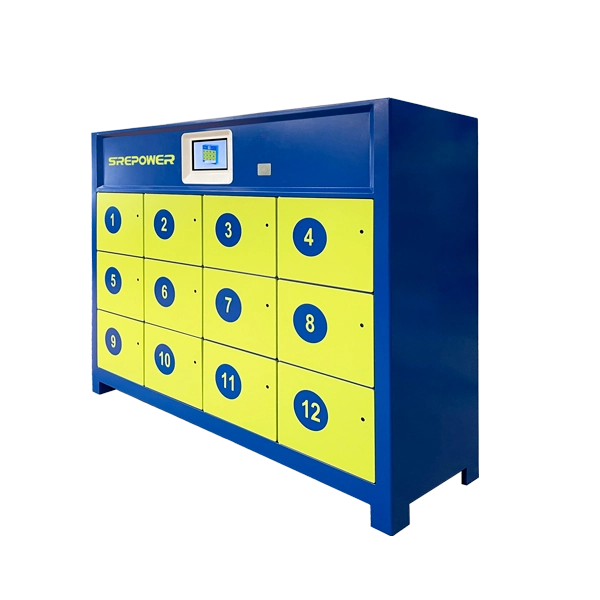
Fast – Flexible – Cloud‑Managed Battery Exchange for electric motorcycle, scooter, tricycle
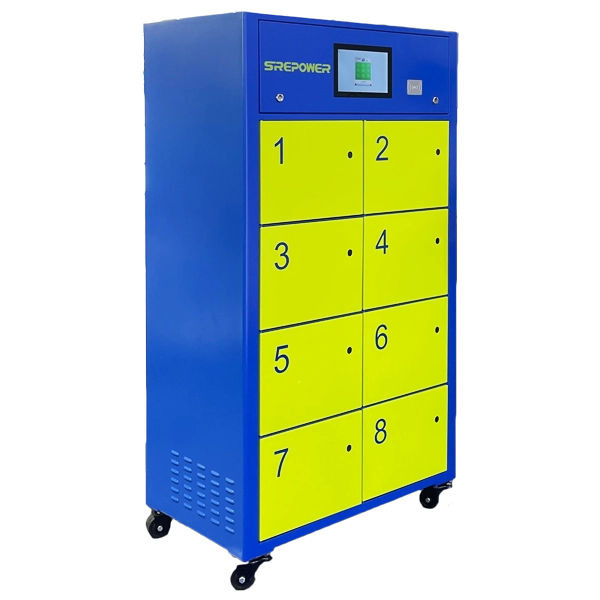
One-stop solution for convenient battery Exchange
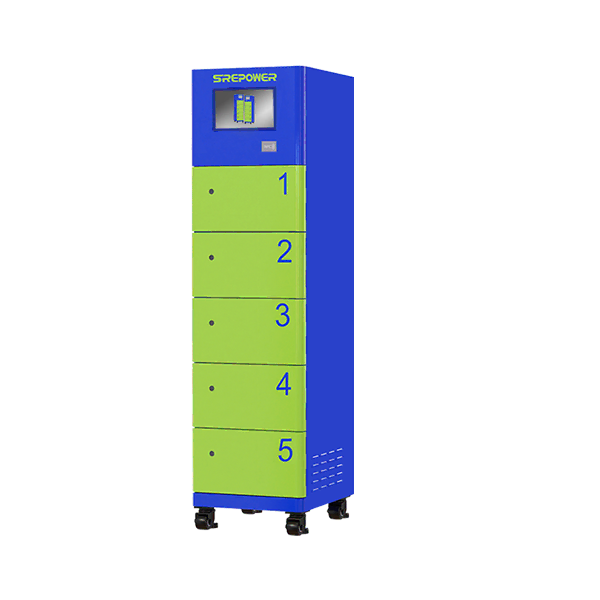
Rapid, Modular 5‑Slot Battery Exchange with Intelligent Cloud Management for Fleet Efficiency
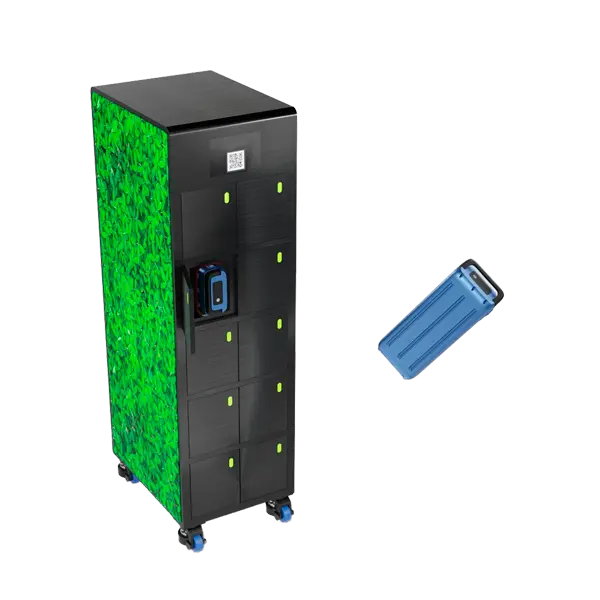
The Best Battery Swap Cabinet Solution Supplier in China
In Indonesia, battery swapping stations support:
Motorcycle taxi fleets (ojeks): Continuous operation for Gojek and Grab drivers
Delivery services: Rapid swaps for food and e‑commerce deliveries in Jakarta and beyond
Tourism & rentals: Resort and island operators use swap kiosks to keep rental scooters running
Corporate fleets: Campus shuttles and logistics vans minimize downtime with instant exchanges
SRE Power’s rugged, IP65‑rated cabinets and cloud platform adapt to Indonesia’s tropical climate and archipelagic geography, offering reliable, low‑footprint solutions for urban and remote locales.
Scalable modules: 4–12 slots—expand capacity as demand grows
Multi‑brand support: Automatic pack identification ensures seamless cross‑OEM exchange
Weatherproof durability: Rust‑proof, IP65 enclosure withstands monsoon and dust
Real‑time IoT data: Telemetry on battery health, swap history, and operator KPIs via cloud dashboard
Comprehensive safety: Multi‑sensor alarms, automatic cut‑off, and fire‑suppression integration
Rapid deployment: Plug‑and‑play cabinets reduce installation time and costs
Renewable ready: Optional solar integration lowers OPEX and grid reliance
A battery swap station in Indonesia is a modular kiosk where EV users—two‑, three‑, and four‑wheelers—exchange depleted battery packs for fully charged ones in 3–5 minutes, eliminating long plug‑in charging times.
Indonesia’s modular swap cabinets (4–12 slots) adapt to local demand, allowing fleet operators to scale battery capacity and maintain continuous operations for delivery and ride‑hail services.
Stations integrate with mobile wallets (GoPay, OVO), NFC cards, QR codes, and in‑app payments—ensuring seamless transactions at every EV battery exchange point.
IoT sensors in each slot send real‑time data (voltage, current, temperature, cycle count) to a cloud dashboard for proactive maintenance and performance analytics.
Yes. Swap station Indonesia cabinets are IP65‑rated, rust‑proof, and include smoke and humidity alarms plus automatic shutdown to protect batteries and users in heavy rain.
Stations support 48–72 V Li‑ion packs used by leading Indonesian EV brands (Gesits, Viar) and are future‑proofed for new two‑, three‑, and four‑wheeler models.
Absolutely—over‑the‑air (OTA) firmware and app updates ensure smart swap stations remain secure and feature‑rich without field service.
Standard input: AC 150–270 V at 115 A max. Optional solar or microgrid integration allows off‑grid operation in remote or island locations.
Prioritize high‑demand zones—ojek hubs, logistics depots, tourist areas, campus entrances—to maximize utilization of EV battery exchange networks.
RE Power provides 24/7 remote monitoring, predictive maintenance alerts, on‑site training, and local field teams—ensuring optimal uptime for every battery swap station Indonesia deployment.
Indonesia’s EV transition—driven by 300% YoY growth in e‑motorbike adoption and government subsidies—has spurred interest in battery swapping stations in Indonesia. Key pilot programs in Jakarta, Bali, and Surabaya serve motorcycle taxi fleets and logistics providers, proving the model’s viability in archipelagic transport networks.
Current Landscape
Fleet Focus: Ojek and delivery operators prioritize uptime, adopting swap kiosks at central depots.
Hybrid Models: “Swap + Charge” hubs co-located with petrol stations and convenience stores offer plug‑in AC charging alongside exchange cabinets.
Local Partnerships: OEMs like Gesits and Viar collaborate with swap-station OEMs to co-deploy standard battery packs.
Emerging Trends
Island‑wide Networks: Small‑island rollouts (Bali, Lombok) leverage solar‑powered cabinets to overcome grid gaps.
Standardization Initiatives: Industry consortiums are defining pack dimensions and communication protocols to streamline interoperability.
Digital Ecosystems: Integration with ride‑hailing apps (Gojek, Grab) for seamless swap reservations and route optimization.
Renewable Integration: Solar canopies and microgrid storage reduce operating costs and carbon footprint.
Public–Private Financing: Blended funding (government grants + franchise models) accelerates station deployment without heavy capex burden on single operators.
Outlook
By 2026, Indonesia aims for 1 million electric two‑wheelers. Achieving this target requires 5,000+ swap kiosks nationwide. SRE Power, with its modular, certified stations and cloud-native platform, is partnering with local stakeholders to roll out scalable, resilient battery‑swap networks—fueling the archipelago’s green mobility revolution.
Selecting the right battery swap station Indonesia manufacturer is essential for reliability, scalability, and ROI. Evaluate these criteria:
1. Proven Expertise & References
Look for vendors with deployments in similar geographies and use cases. SRE Power’s leadership since 2014, with projects across Southeast Asia, Africa, and India, showcases robust performance in diverse environments.
2. Modular Scalability
Choose systems that scale—from 4 to 12 slots—without full cabinet replacement. Modular designs reduce initial capex and adapt to growing EV adoption.
3. Cross‑OEM Compatibility
Ensure universal pack interfaces and auto‑identification. Standards like IEEE 2030.1.1 guarantee interoperability as new EV models emerge.
4. Safety & Certifications
Verify compliance with ISO9001, ISO14001, IATF16949, plus local Indonesian certifications. Confirm multi‑layer safety: over‑current, over‑voltage, short‑circuit, environmental sensors, and emergency cut‑off.
5. Digital Management & Remote Operations
A robust cloud platform—supporting 2G/4G, OCPP, and MQTT—enables real‑time monitoring of battery health, swap counts, revenue, and maintenance alerts. OTA updates minimize field service.
6. Local Manufacturing & Support
Assess the manufacturer’s regional production and service network. SRE Power’s facilities in China, Malaysia, and Africa, combined with Indonesian partners, offer quick delivery and rapid technical support.
7. Total Cost of Ownership
Compare upfront costs, battery inventory financing, energy sources (grid vs. solar), and recurring platform fees. High-utilization modular swap stations often yield faster breakeven.
8. Integration with Charging Infrastructure
Consider compatibility with EV fast chargers and public AC/DC stations. Hybrid providers like SRE Power allow operators to offer swaps plus plug‑in charging for maximum flexibility.
9. Renewable Energy & Microgrid Capability
If sustainability is a priority, opt for stations that integrate solar or battery‑storage systems, enabling off‑grid operation and demand‑response services.
10. Customer Success & Training
Request case studies and speak to existing clients about reliability, platform usability, and support responsiveness. SRE Power’s on‑site training and 24/7 monitoring ensure partner success.
By rigorously evaluating manufacturers against these dimensions, operators will secure a partner capable of delivering safe, efficient, and scalable battery-swap networks tailored to Indonesia’s unique geography and market dynamics.
Indonesia’s battery‑swap station market features a mix of domestic pioneers and global innovators:
SRE Power
Modular 4–12 slot cabinets, IoT telemetry, cloud analytics, OTA updates, global reference sites.
PT XYZ Energi
Local startup focusing on two‑wheelers, integrates swap with social‑media–based loyalty programs.
Gesits & Viar (OEM Co‑op)
Motorcycle OEMs offering factory‑branded swap cabinets for their electric models.
Sun Mobility
JV with local partners, standardized packs, 200+ stations, BaaS subscriptions.
Lithium Urban Technologies
Fleet‑centric swap + telematics platform for logistics and ride‑hailing fleets.
Exide Energy Solutions
Legacy battery maker, deploying large‑format swap kiosks with microgrid integration.
GrabCharge
Grab’s in‑house solution, integrating with its app for real‑time station availability.
EVSAFE Indonesia
Specializes in portable swap vans and temporary pop‑up swap booths for events.
Amara Raja Batteries
Industrial battery leader, offering high‑density swap modules and recycling services.
Bounce Infinity
Bike‑rental platform building open‑access swap networks alongside its rental fleet.
These firms differentiate on capacity, platform features, financing models, and geographic coverage. SRE Power’s comprehensive, certified, and modular approach positions it at the forefront of Indonesia’s swap‑station ecosystem.
Interested in battery swap station indonesia Contact us today to learn how our solutions can power your vehicles!
